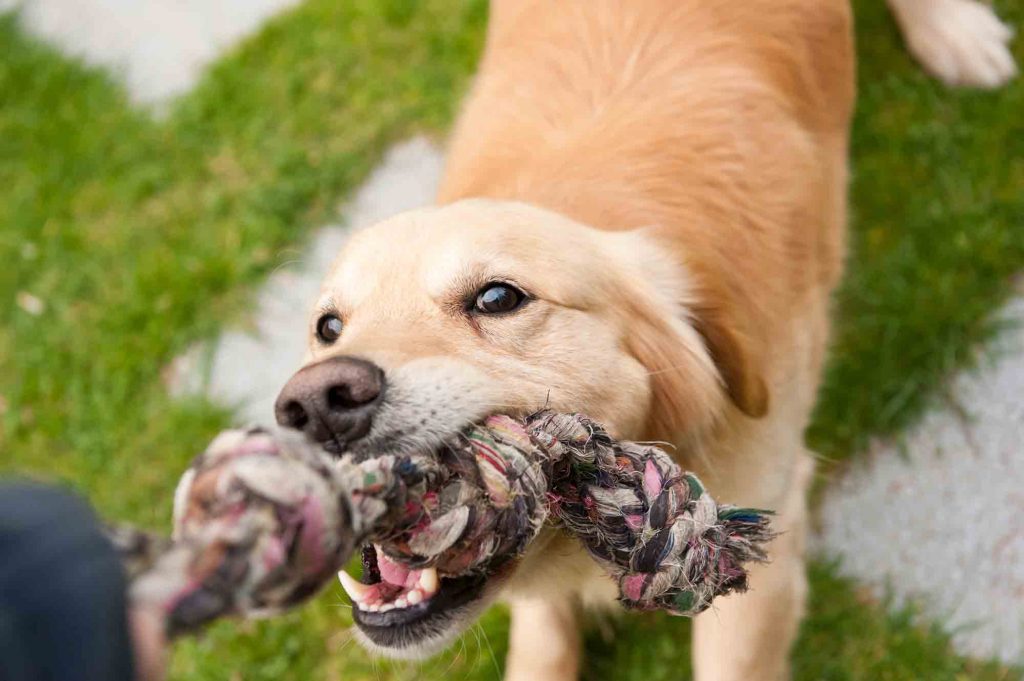Don’t Eat That! A Spotlight on Foreign Bodies in Pets
 Pets are curious by nature, and their obvious delight in investigating new or interesting objects is part of what makes them so lovable. The trouble begins when Fido or Fluffy go from innocently sniffing that sock left on the floor, to swallowing it whole. Some small items may pass through your pet’s GI tract, but it doesn’t take much for a foreign body to become lodged somewhere along the way, creating a dangerous and life-threatening situation for a pet.
Pets are curious by nature, and their obvious delight in investigating new or interesting objects is part of what makes them so lovable. The trouble begins when Fido or Fluffy go from innocently sniffing that sock left on the floor, to swallowing it whole. Some small items may pass through your pet’s GI tract, but it doesn’t take much for a foreign body to become lodged somewhere along the way, creating a dangerous and life-threatening situation for a pet.
The ingestion of foreign bodies in pets is rarely ever without consequence. Learning to recognize the signs of a GI obstruction, along with lots of supervision and a thorough pet-proofing, are the keys to keeping your furry loved one safe and healthy.
Common Culprits
Any veterinarian will tell you that the list of inedible items retrieved from, or passed through, a pet’s GI tract each year reads like a shopping or to-do list. Some of the most common foreign bodies in pets include:
- Socks
- Towels
- String, ribbon, or yarn
- Corn cobs
- Rope toys
- Tinsel
- Bones
- Hair ties and rubber bands
- Fruit pits
- Jewelry
- Coins
- Batteries
- Bone and rawhide fragments
- Squeakers and stuffing from plush toys
- Floss
- Wrapping paper
- Sticks and rocks
- Mulch
- Nerf Darts
- Balls
- Small plastic toys
Signs and Symptoms
If you know or suspect that your pet has ingested a foreign body, please call us immediately. Most pets that have eaten something they shouldn’t have will exhibit certain clinical signs of trouble, such as:
- Vomiting
- Loss of appetite
- Obvious abdominal pain
- Straining to defecate, or producing only small amounts of feces
- Lethargy
- Changes in behavior, such as biting or growling when touched or picked up
- Unwillingness to lie down
- Hiding (especially in cats)
The Next Steps
A thorough exam, X-rays, or ultrasound are typically needed to diagnose a GI obstruction. Depending on the size and location of the item, we may induce vomiting, remove it surgically, or simply wait for it to pass naturally. Pets may also need to be treated for dehydration, vomiting, or secondary infection.
Preventing Foreign Bodies in Pets
Protecting your sweet pet from a potential disaster requires some serious pet-proofing and supervision. Our ideas should help you get started:
- Keep all small, inedible objects off of the floor and off of low-lying shelves and tables.
- Do not leave clothing, towels, and other textiles where your pet can get them.
- Provide sturdy toys for your pet that are too large to be swallowed whole. Throw the toy away if it becomes damaged.
- Always supervise your pet when chewing on or playing with chew toys or dental treats. Do not give your pet cooked or raw bones, or brittle rawhides.
- Be careful to keep string, ribbon, tinsel, and dental floss away from your pet (especially cats), as these items can cause considerable damage if swallowed.
- Keep trash containers closed and put away leftovers immediately after eating.
- Exercise and play with your pet daily, to expend excess energy and relieve boredom.
- Be sure that your pet knows the “drop it” or “leave it” command.
Your partners in pet care at Dupont Veterinary Clinic are here for you! Don’t hesitate to reach out to us with questions about foreign bodies in pets, or any other concern you may have.
